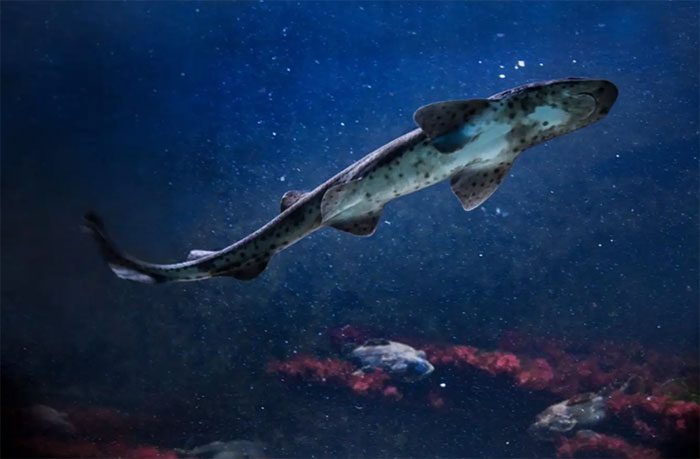According to a new study, the survival rate of shark embryos could drop from 82% to 11% in the worst-case scenario, and they may even cease to hatch if global warming continues.
The research presented at the annual meeting of the Society for Experimental Biology in Prague, Czech Republic, indicates that shark eggs are less likely to successfully hatch if global warming is not controlled.

The Spotted Catshark is one of the species that may be affected by global warming – (Photo: Shutterstock/Podolnaya Elena).
The study, conducted over 10 months, examined the development of embryos, yolk consumption, and survival rates of Spotted Catshark eggs under three distinct conditions. There was a control group with temperature and pH levels that matched the oceans from 1995 to 2014.
Then there was a group called SSP2, or the “neutral” scenario, where the temperature increased by 2.7°C and the pH decreased by 0.2. This group aimed to simulate what would happen by the year 2100 if humans reduced fossil fuel usage but did not completely eliminate it.
In another group, known as SSP5, or the “Fossil Fuel Development” scenario, the temperature increased by 4.4°C and the pH dropped by 0.4. This group simulated what would occur if humans continued to increase fossil fuel usage until 2100.
The shark embryos exhibited high survival rates in the first two groups—81% and 83%, respectively. In group 3, which modeled the anticipated ocean conditions if fossil fuel usage continued to escalate, the survival rate of the embryos was extremely low—only 11%.

Spotted Catshark embryos in eggs – (Photo: Noémie Coulon / Society for Experimental Biology).
Noémie Coulon, a PhD student at the Laboratory of Biology of Aquatic Organisms and Ecosystems in France, stated: “We were shocked by the low survival rate observed in the SSP5 scenario, with only 11% of embryos hatching. This mortality rate was most pronounced in August, coinciding with the highest temperatures (reaching 23.1°C) and during the developmental stage when the embryos underwent gill resorption.”
According to the study, the surviving sharks in the third group exhibited a different growth pattern compared to those in other groups. They were slimmer than sharks from the other groups but showed a faster growth rate after hatching.
The researchers hypothesized that sharks might need to develop abnormally to survive significant climate changes. What makes these individuals unique remains unclear.
Warmer Temperatures, Higher Ocean Carbon Dioxide Levels Warmer temperatures also mean that more carbon dioxide will dissolve in the oceans, making this environment more acidic and less hospitable to life. Noémie Coulon remarked: “Embryos of oviparous species are particularly sensitive to environmental conditions. The successful hatching of embryos is a crucial factor in population dynamics. For slow-living species like rays and sharks, low hatching rates can significantly impact population renewal.” |


















































